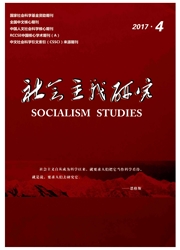

 中文摘要:
中文摘要:
在社会组织化较低和村民个体化的条件下,治理精英成为与政府合作推进扶贫工作、协调国家与社会关系的核心纽带。通过构建基层政府、治理精英、村民三者间行动逻辑与行动策略的理论框架,本文尝试对治理精英为什么会成为衔接国家与社会关系的纽带和乡村社会扶贫的关键力量的原因作出解释:其一,村庄内部人力、财力、文化等资源的匮乏使得普通村民群体难以肩负脱贫致富的重任,作为“弱者”,他们更愿意依赖治理精英来实现这一愿望;其二,受到经济理性观念的影响,基层政府更信赖有声望、有发展能力的治理精英,富有治理精英的村庄因而更容易获取政府扶贫资源;其三,乡村治理精英无论是个人禀赋还是社会资源相比一般村民具有更多优势,在扶贫行动中他们更可能发挥核心作用。但是治理精英协作扶贫虽然在扶贫初期能够广泛调动社会资源、整合乡村社会力量参与扶贫,但是也存在一些弊端,即体制内治理精英的双重角色的冲突和治理精英协作扶贫的脆弱性。
 英文摘要:
英文摘要:
In conditions of low social systematisation and villagers individualization, rural governance elite become the core link for promoting poverty alleviation and coordinating the relationship between state and society.This paper attempts to explain why the rural society, and a key strength of the rural society of poverty governance elite become a tie between state and alleviation by building the grass-roots of action logic and strategy of grassroots government, governance elite and villagers. First,the ordinary villager groups hard to shoulder the task of poverty alleviation because of lack of resources, financial in the village,so they are more willing to rely on rural governance elite to achieve this aspiration.Second,affected by economic rationality concept, grass-roots government more trust the elite who have more prestigious and the ability to develop.As a result of the above, villages abound with rural governance elite will become easier access to government resources to poverty alleviation. Third,rural governance elites are more likely to play a central role in poverty alleviation initiatives for the reason that they have more personal endowments and social resources than the ordinary villager.However, although rural governance elites can mobilize social resources, social forces to participate in the integration of rural poverty alleviation in the early,they themselves still have many drawbacks,such as dual role conflict within the system,and the fragility of governance elite participation in poverty alleviation.
 同期刊论文项目
同期刊论文项目
 同项目期刊论文
同项目期刊论文
 期刊信息
期刊信息
